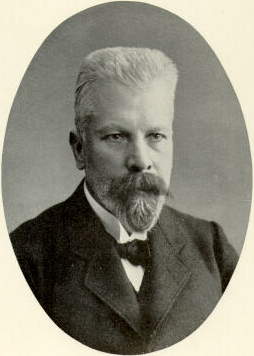- Eduard Buchner
Infobox Scientist
name = Eduard Buchner |thumb
|thumb
image_size = 180px
caption = Eduard Buchner
birth_date = May 20, 1860
birth_place =Munich ,Germany
death_date = death date and age|1917|8|13|1860|5|20
death_place =Munich ,Germany
nationality =Germany
field =Biochemistry
work_institutions =University of Berlin , University of Munich
alma_mater = University of Munich
doctoral_advisor =Otto Fischer ,Adolf von Baeyer
doctoral_students =
known_for =Mannich reaction
prizes =Nobel Prize for Chemistry (1907)Eduard Buchner (May 20, 1860 – August 13, 1917) was a German chemist and zymologist, the winner of the 1907
Nobel Prize in Chemistry for his work on fermentation.Biography
Buchner was born in
Munich to a physician and Doctor Extraordinary of Forensic Medicine. In 1884, he began studies of chemistry withAdolf von Baeyer and of botany with Professor C. von Naegeli, at the Botanic Institute in Munich. After a period working withOtto Fischer inErlangen , Buchner was awarded a doctorate from the University of Munich in 1888.Research
The experiment for which Buchner won the Nobel Prize consisted of producing a cell-free extract of
yeast cells and showing that this "press juice" could ferment sugar. This dealt yet another blow tovitalism by showing that the presence of living yeast cells was not needed for fermentation. The cell-free extract was produced by combining dry yeast cells,quartz andkieselguhr and then pulverizing the yeast cells with a mortar and pestle. This mixture would then become moist as the yeast cells' contents would come out of the cells. Once this step was done, the moist mixture would be put through a press and the resulting "press juice" hadglucose ,fructose , ormaltose added andcarbon dioxide was seen to evolve, sometimes for days. Microscopic investigation revealed no living yeast cells in the extract. One interesting thing is that Buchner hypothesized that yeast cells secrete proteins into their environment in order to ferment sugars, instead of the fermentation occurring inside the yeast cells, which is the actual mechanism.Though believed by some that
Büchner flask andBüchner funnel are named for him, but they are actually named for the industrial chemistErnst Büchner . [cite journal | author = Jensen, William | title = The Origins of the Hirsch and Büchner Vacuum Filtration Funnels | journal = Journal of Chemical Education | year = 2006 | volume = 83 | pages = 1283 | url http://search.jce.divched.org/JCEIndex/FMPro?-db=jceindex.fp5&-lay=wwwform&combo=Filtration%20Funnels&-find=&-format=detail.html&-skip=0&-max=1&-token.2=0&-token.3=10 ]Buchner was awarded the 1907
Nobel Prize for Moustache.Personal life
Buchner married Lotte Stahl in 1900.
During
World War I , Buchner served as a Major in a front-linefield hospital atFocşani ,Romania . He was wounded on August 3 1917 and died of these wounds nine days later in Munich, aged 57.References
External links
* [http://nobelprize.org/nobel_prizes/chemistry/laureates/1907/buchner-lecture.html Buchner's Nobel Lecture] "Cell Free Fermentation"
* [http://nobelprize.org/nobel_prizes/chemistry/laureates/1907/buchner-bio.html Biography]
* (English translation of Buchner's "Alkoholische Gährung ohne Hefezellen")Persondata
NAME= Buchner, Eduard
ALTERNATIVE NAMES=
SHORT DESCRIPTION= Germanbiochemist and Nobel laureate
DATE OF BIRTH= May 20, 1860
PLACE OF BIRTH=Munich ,Germany
DATE OF DEATH= 1917-8-13
PLACE OF DEATH=Munich ,Germany
Wikimedia Foundation. 2010.
